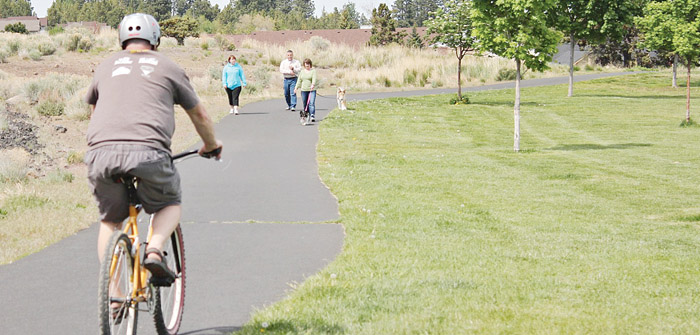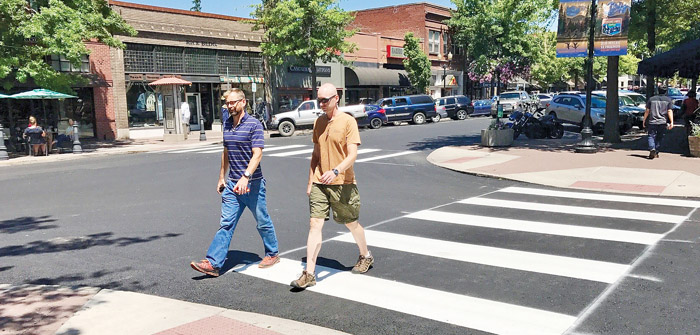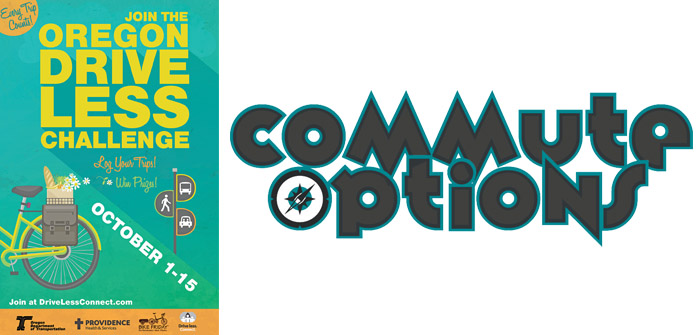Do you ever find yourself enjoying a sunny lunchtime stroll in Drake Park? Or does your morning bike commute take you along the river on a section of the Deschutes River Trail? Either way, you likely use some of our important urban trails and paths for having fun or for biking or walking to from one place to another.
Urban trails are an important part of providing multi-modal transportation options. They allow residents to access close-to-home recreation opportunities and provide off-street connections between neighborhoods, schools, parks and business centers. They provide active transportation that improves community health, creates livable neighborhoods and allows people of all ages and abilities to get outside and get moving.
Bend takes its trails seriously! Bend Park and Recreation District’s (BPRD) 2011 district-wide survey showed that soft surface and hard surface trails were by far the most valued and desired recreation amenities in Bend. BPRD currently manages 65 miles of urban trails within the district—about 0.8 miles per 1,000 residents.
BPRD Park and Trail Planner Steve Jorgensen shares that their goal is to provide trails for users of all comfort levels and abilities and to provide connectivity between residential areas, schools, parks and businesses. “For the past 20 plus years, our surveys show that residents value trails very highly. We are always looking for additional recreational opportunities and ways to connect trails and fill the gaps. Right now we are focusing on potential trails along canals and working on providing more east-west connections for the community.” BPRD also continually works on trails that leave Bend and connect to popular public land recreation areas, such as the Upper Deschutes River and Phil’s trail head.
BPRD coordinates closely with the City of Bend on our urban trail system. Robin Lewis, Transportation Engineer for the City of Bend adds, “Urban trails play an important role in our transportation system as they can traverse long distances with very little interaction with traffic. Trails, city streets, sidewalk and bike lanes are all necessary to complete the door-to-door connections for people. Important coordination efforts between the city and park district occur with trail-roadway crossings, way-finding signage, and access to routes to ensure a seamless system for everyone.”
For those who walk or bike to work, trails provide a reprieve from on-street traffic. Regular bike commuter Chris Kratsch commutes from the west side of Bend to the north end of town, off Empire Ave. “Utilizing the river trail at First Street Rapids is the best part of my commute. I get to ride on the river and see other people dog walking, running and bike commuting. It’s a nice way to start and end my day.”
Have you been on the 65 miles of trails in Bend? You might find that there are several trails and paths that you didn’t even know existed and they might be a great way to access other areas from your own neighborhood. Commute Options encourages everyone to check out Bend Park and Recreation’s full list of trails on their website at www.bendparksandrec.org/Parks_Trails/trail_list.
Commute Options promotes choices that reduce the impacts of driving alone. For more information, contact Executive Director, Jeff Monson at 541-330-2647 or visit www.commuteoptions.org
Katy Bryce is a freelance writer in Bend. www.katybryce.com





